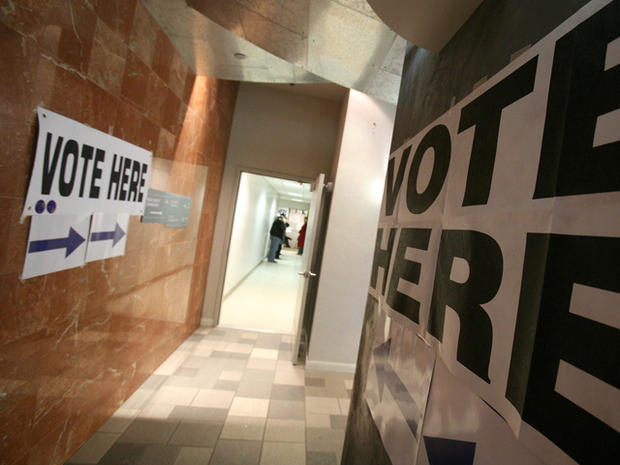Florida sets January 31 for presidential primary
UPDATED 12:24 p.m. ET
As expected, the Florida commission tasked with deciding its 2012 primary date has decided on the date that it was supposed to be all along. January 31, 2012.
And the very situation the National Party Committees hoped to avoid, is going to happen, as the first four states, Iowa, New Hampshire, Nevada and South Carolina are expected to move their primary or caucus events earlier in to January. Florida, as its leadership wanted, will likely be the fifth contest next year.
"That process included discussion of a range of dates from January 3rd to March 6th or later, so this compromise of January 31st properly reflects the importance Florida will play on the national stage," said Lenny Curry, chairman of the Republican Party of Florida.
The first reaction was from New Hampshire, which will move up its filing deadline for its primary to the end of October, from mid-November.
"Because we cannot rule out the possibility of conducting the primary before the end of this year, we are, regrettably, as we were four years ago, forced to move the presidential candidates filing period to October," said New Hampshire Secretary of State William Gardner in an ominous statement.
"In 1972, the State of Florida decided by law to have its presidential primary on the same day as New Hampshire. They were not successful. Since then we have not been able to continue having the primary on the second Tuesday in March, the only date specified in our state law to this day. Unfortunately, we will be unable to have the upcoming Presidential Primary on the second Tuesday in March and still continue to honor the tradition of our First in the Nation Presidential Primary," said Gardner.
The decision to move the deadline could have an immediate impact on candidates not in the presidential race, as they now have two less weeks to declare their candidacies. (see: Chris Christie and Sarah Palin)
"Florida's decision to move its primary is disappointing and, frankly, disrespectful of the other early primary states and the process as a whole," said Amy Tarkanian, Chairman of the Nevada Republican Party.
For its part, the Nevada Republican Party has already indicated it will move its caucus up to coincide with New Hampshire.
"Because the date of Nevada's caucus is, by rule, four days after New Hampshire's, we will move Nevada's First in the West caucus if the New Hampshire GOP moves theirs. No matter what, we will not allow this disruption to interfere with our goal of creating a Presidential caucus that will be the pride of the western states," said Tarkanian.
With so many contests now occurring earlier in the year, for the second presidential election in a row, there could be a gap in contests in mid February. Missouri is expected to hold its primary on February 7, unless the legislature can move a bill pending there, which the Governor would support, to move it into March. Michigan is expected to go on February 28, the same say as Arizona. Georgia, which was expected to go in February, announced yesterday it would hold its primary on what will be Super Tuesday, March 6, along with Texas and others.
Florida's decision once again highlights a quadrennial argument over which states should have more influence in picking a nominee. Florida argues that its size, and the fact that it is a swing state, should give it the added clout in the process that comes with an early date. Smaller states like Iowa and New Hampshire have long pointed out that they permit candidates to do more "retail" politics and meet more voters, who in turn have a chance to vet them.
The national party has tried to accommodate all these concerns by allowing one state from each region to go in the early block - Iowa, NH, SC and Nevada.
The national party has threatened early states with the possibility to delegate sanctions. However Florida may not fear - or may simply discount - this threat, especially since the convention is in Tampa, and it may be an awkward situation to block out some or all Florida delegates.

